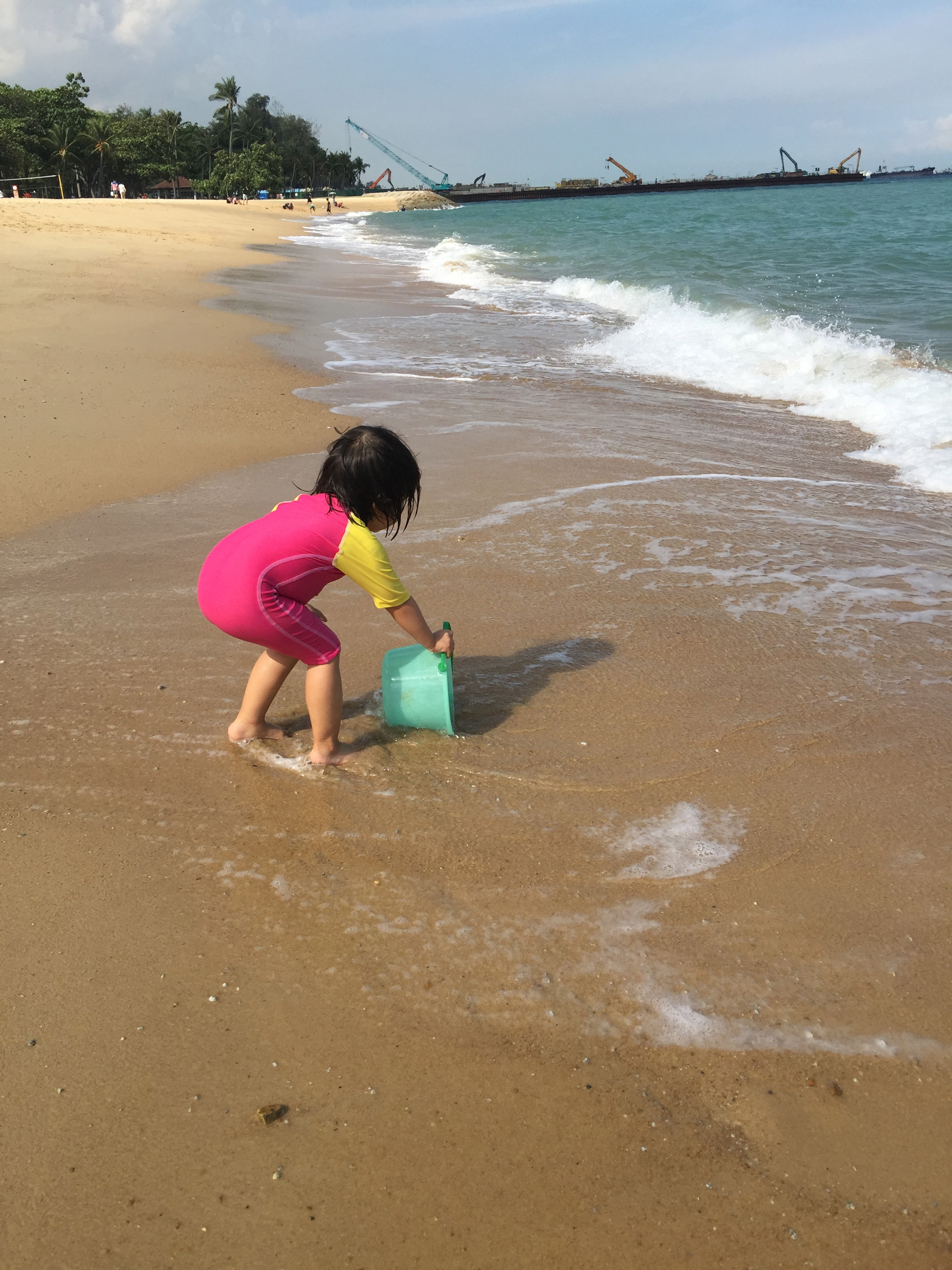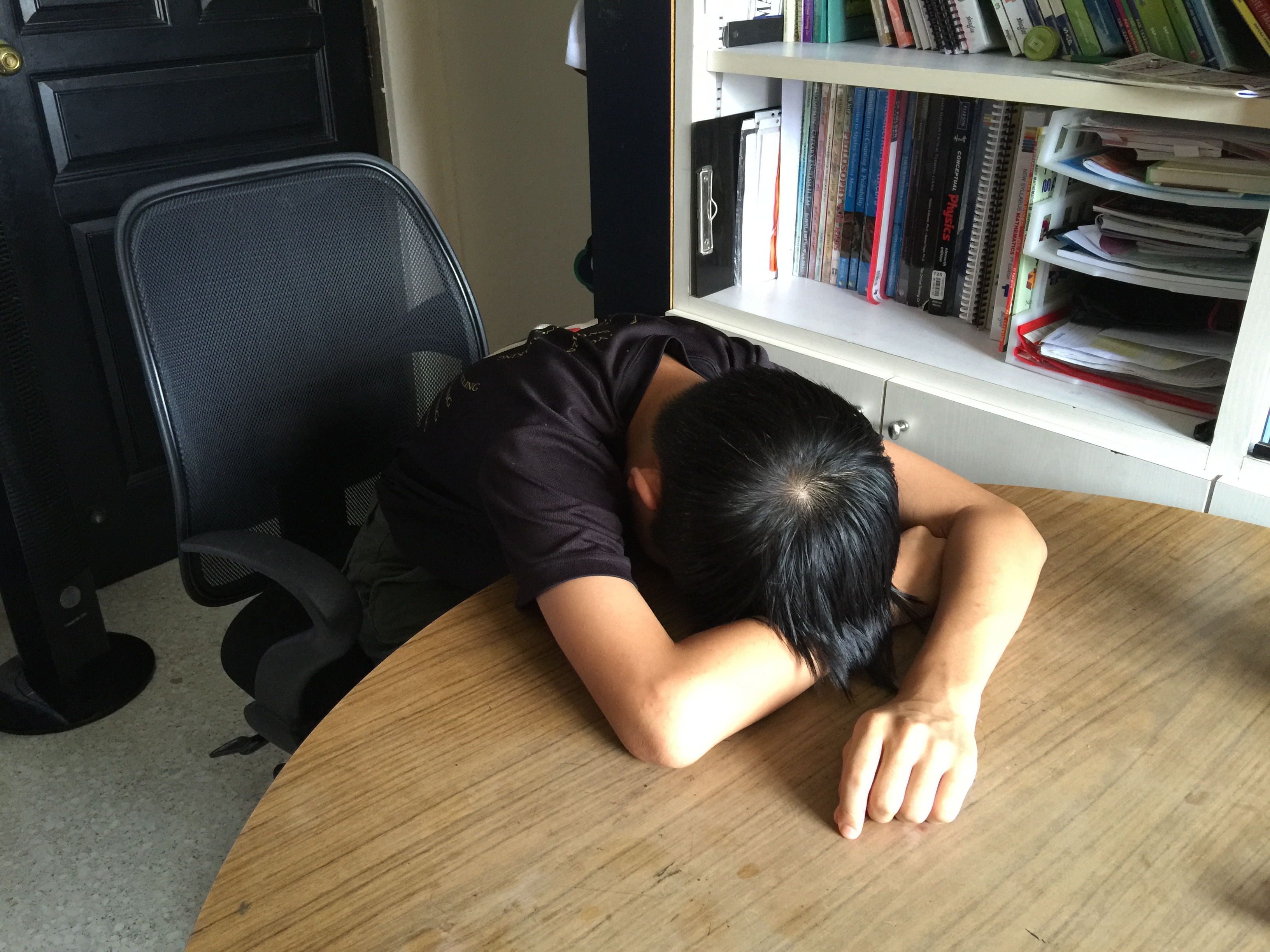As parents and educators, we are always looking for ways to help our children be self-motivated learners. What if I told you it is actually not difficult to achieve that?
Self-Motivation At Work
The last activity my 3.5-year-old asked to do last night before bed was to have a piece of paper and pencil to write her name. She wrote it several times, including the names of the rest of the family, before declaring she was ready to sleep.
This morning, she woke up and asked to play the alphabet game. So we brought out her kit and she happily settled down to trace the alphabets and match the uppercase letters with the lowercase letters.
Prior to her interest in the alphabets, she was obsessed with colours and would ask to make different colours. That was when she would bring out her paint set or even our food colouring set to mix different colours together.
She did these activities on her own accord. Not once did I suggest or entice her to do any of them.
Children Are Programmed to Learn
The fascinating thing is all our children are programmed to learn. When they are ready, they will pick up what they want to learn really fast. All we need to do is to watch for openings like that and offer them what they need.
Introduce Concepts And Let Curiosity Take Over
Why did my preschooler ask to write? How did she know about the alphabet game? Why would she want to mix colours?
My role in her education is to expose her to different concepts and different games. Occasionally I would bring out different games/toys and let her mess around with it.
For example, when she was painting, I took the opportunity to show her how mixing different colours would give us a new colour. And that was all I did. I did not insist that she had to do likewise. I just planted a seed of colour mixing in her mind. A few days later, she tested out mixing different colours on her own when she was painting.
The beauty was she kept repeating the activity over several weeks until she remembered what colours to mix to get whatever colour she wanted. She learned how to mix more colours on her own than what I had shown her. And she learned that all by herself.
Likewise for writing and alphabet recognition. I showed her how her name looked like on paper and she was intrigued. But I did not ask her to write. Some time later she asked me to teach her how to write her name. After some practice, she learned how to do it herself. That subsequently extended to writing the names of the rest of the family. And because she was interested in alphabets, I introduced her the alphabet game matching uppercase and lowercase letters. Then when she felt like it, she asked to play the game.
We did the same with time. We have a book on time which she enjoys. One day, I showed her a toy clock that she could play with. A few days later, she brought the clock out so she could show the time on the clock as we read the book together at bedtime.
Subsequently she extended that to showing time on the clock that went beyond what was covered in the book.
A lot of the learning that happened resulted from me introducing a concept/toy/game to her once or twice without asking her to do anything. If she wanted to try it out, great. If she was not interested, that was fine too. Invariably, she would pick up the learning on her own. And she almost always learned more than what I had shown her during my introduction of those concepts.
How different would it have been had I structured her play and insisted now was time to mix colours, or now was time to trace letters? Would I have to cajole her? Would I have met with resistance? Would she have willingly spent so much time doing those activities and learning? Would she have extended her learning to find out more than what I had shown her?
The Danger of Over-Structuring
Why is important for us to pick up the cues of our children instead of structuring their play?
The reason is simple. It is because we want our children to be self-driven and self-motivated.
When we constantly tell our children what we want them to do, or entice them to do what we want them to do, we deprive them of the ability to listen to their needs. We deprive them of the time to think about what they want to do. We deprive them of the freedom to pursue their own interests. We deprive them of the opportunity to learn what they want.
How Self Motivation Is Lost
By definition, self-motivation means doing something because you want to.
Like I mentioned earlier, our children are programmed to learn. But they lose their self-motivation when we over-structure their learning. Why?
That is because they then see learning as something external to them. They begin to associate learning as something that someone wants them to do, not something they want to do. To them, learning is something their teachers or their parents or their school or the exams want them to know. It is not because THEY want to know.
By and by, our children forget how to be self-driven. They rely on us or someone else to tell them what to do. They lose their initiative. They become disinterested. They lose their self motivation. They become unmotivated.
What Should We Do?
Our role is to introduce an idea or a concept that triggers curiosity. And that needs to be followed by a keen observation of when that seed of curiosity has taken root so that we can provide the resources when our children are ready to learn.
Math can be learned through games. History can be learned through play and dramatisation. Science facts, geography etc, can be learned through songs. We are so blessed to be living in this day and age where the internet makes such resources readily available to us.
Let Them Play
Playing is what children do best. And playing is how children learn best. When they play, especially play that is self-directed, they do it because they want to. And because they want to, they absorb the lessons from the play effortlessly.
It is extremely important that from young, we give our children time and space to play.
Playing is doing and learning with self motivation.
Playing is NOT a waste of time.
Playing is how children develop curiosity.
Playing is how our children satisfy their curiosity.
Playing is how our children continuously desire to learn and find out more.
Conclusion
The more our children play, the more questions they have, the more they want to find out the answers and the more they are motivated to learn more on their own. It really is as simple as that.
If you want your children to be self-motivated learners, I strongly encourage you to set aside time for your children to play.








